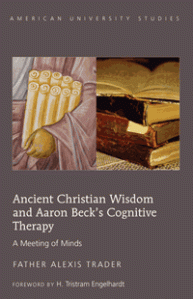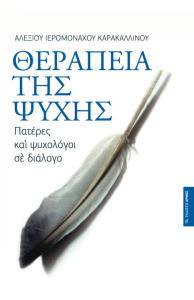Relationships and Forgiveness
 Perhaps our own experience provides us with evidence concerning the next antecedent to forgiveness: the nature of our relationship with another person.
Perhaps our own experience provides us with evidence concerning the next antecedent to forgiveness: the nature of our relationship with another person.
Our relationship with the one who has offended us usually does influence our willingness to forgive the offense and the offender. When we are involved in a committed relationship with another person, the sting of the offense may be more pronounced, but often our willingness to forgive is determined by the quality and history of the relationship that enable us to forgive more readily. Riek and Mania concluded similarly in writing, “Commitment between the offender and victim is likely to influence one’s reaction to an offense. When people have invested a great deal in a relationship and see it as beneficial, they may be motivated to ‘explain away’ their partners’ offenses in order to allow the relationship to continue. Indeed, Finkel, Rusbult, Kumashiro, and Hannon (2002) found that as the level of commitment between two people increases, the likelihood of forgiveness also increases.”
The fathers offer us profound and beautiful insights into the goal of human relationships. Their thinking is summarized well by Abba Isaiah whom I quote in Ancient Christian Wisdom, “Nature did not fashion human beings to be like solitary beasts, but rather like a flock of gregarious animals who share the same pastures, so that each person would live not only for himself, but also for his father and mother, for his siblings, for his spouse, for his children, for his other relatives, for his friends, for his fellow townsmen, for his fellow countrymen, for those living in his part of the world, for all humanity, even for every aspect of all things, for the entire world, and foremost for his God and Maker.” Clearly, living for others means having a commitment to others and investing oneself in relationships with others. According to Abba Isaiah, this is what it means to be human. Our ultimate calling is for our commitments and our relationships to expand until they include everyone from the least of our brethren to the God of all. And in doing so, forgiveness should become easier, not because we explain away the offenses of others, but because we love them away with the very love of God.
If we agree with researchers that the quality and importance of relationships play an important role in a forgiving disposition and if we note that the Christian faith is very much about the quality and importance of our relationship with the triune God and our every neighbor for whom God became incarnate, it would be difficult to argue with the fact that acquiring a forgiving disposition is imperative for a full, flourishing, and blessed human life.
As Elizabeth A. Gassin writes in her article, “Interpersonal Forgiveness From an Orthodox Perspective”, “God creates each person in His own image and likeness, meaning that we are relational beings because God Himself has an eternal relationship of love between Father, Son, and Holy Spirit. Therefore, our fulfillment of self is found ultimately in loving others, including our enemies, with an active, perfect, self-sacrificing love.” Put otherwise, when we repair relationships through forgiveness we are not only working for God’s will to be done “on earth as it is in heaven,” but also entering into the mystery of being in the image and likeness of God. In that image and in that forgiveness, we ultimately find fulfillment.
However, according to the Orthodox Christian understanding of forgiveness, there is also an incarnational aspect to imitating Christ in forgiving others. Gassin notes, “Another facet of this same argument is that in forgiving and reconciling with an offender, we participate in the life of Christ. In fact, we might even say that we “incarnate” Christ in the lives of self and offender. This refers back to the notion of theosis discussed above. Archbishop Chrysostomos (personal communication, March, 2000) writes that when we control our fallen passions, such as anger, in the face of offense: God rewards this labor, not just with the control of our passions, but with the transformation of our intention and desires, such that we attain the same passionless passion that was in Christ…once we have been cleansed, we participate in the Divine nature, and the purity of the image of God is restored in us… Orthodox Christians who forgive an offender with a heart undarkened by the passions of pride and anger continues to be purified by the Spirit of Love. They also enter into the life and nature of Christ, who emptied Himself for the sake of those who were at enmity with God and offers new life through His Resurrection and the sending of His Spirit. For Orthodox Christians, this process of entering into Christ’s life is the very definition of salvation.”
Forgiveness sets us on that glorious road of which Saint Athanasius of Alexandria wrote, “He was made man, that we might be made god”(Incarnation of the Word, 5:3). In other words, we are called to become by grace what the Lord Christ is by His nature, related to all, compassionate towards all, committed to all, forgiving towards all, loving for all. In this context, it is clear that the keen insights gleaned from psychology concerning the relational antecedent of forgiveness are transformed by the fathers into deep healing that is capable of transforming the entire person, and by that person’s commitments and relationships with others, the entire world.



